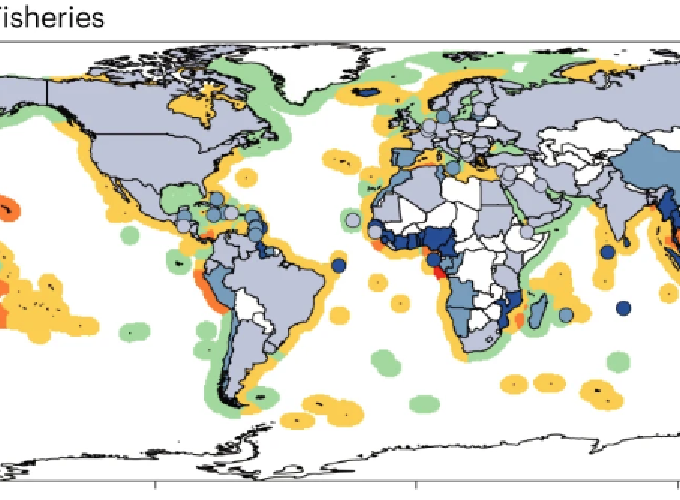
Climate change exacerbates nutrient disparities from seafood

Climate change exacerbates nutrient disparities from seafood
Seafood is an important source of bioavailable micronutrients supporting human health, yet it is unclear how micronutrient production has changed in the past or how climate change will influence its availability. Here combining reconstructed fisheries databases and predictive models, we assess nutrient availability from fisheries and mariculture in the past and project their futures under climate change. Since the 1990s, availabilities of iron, calcium and omega-3 from seafood for direct human consumption have increased but stagnated for protein. Under climate change, nutrient availability is projected to decrease disproportionately in tropical low-income countries that are already highly dependent on seafood-derived nutrients. At 4 oC of warming, nutrient availability is projected to decline by ~30% by 2100 in low income countries, while at 1.5–2.0 oC warming, decreases are projected to be ~10%. We demonstrate the importance of effective mitigation to support nutritional security of vulnerable nations and global health equity. The authors use fisheries databases and predictive models to understand past and future changes in the availability of iron, calcium omega-3 and protein from seafood. They show disproportional loss of nutrients in tropical low-income countries, which will be exacerbated by higher levels of global warming